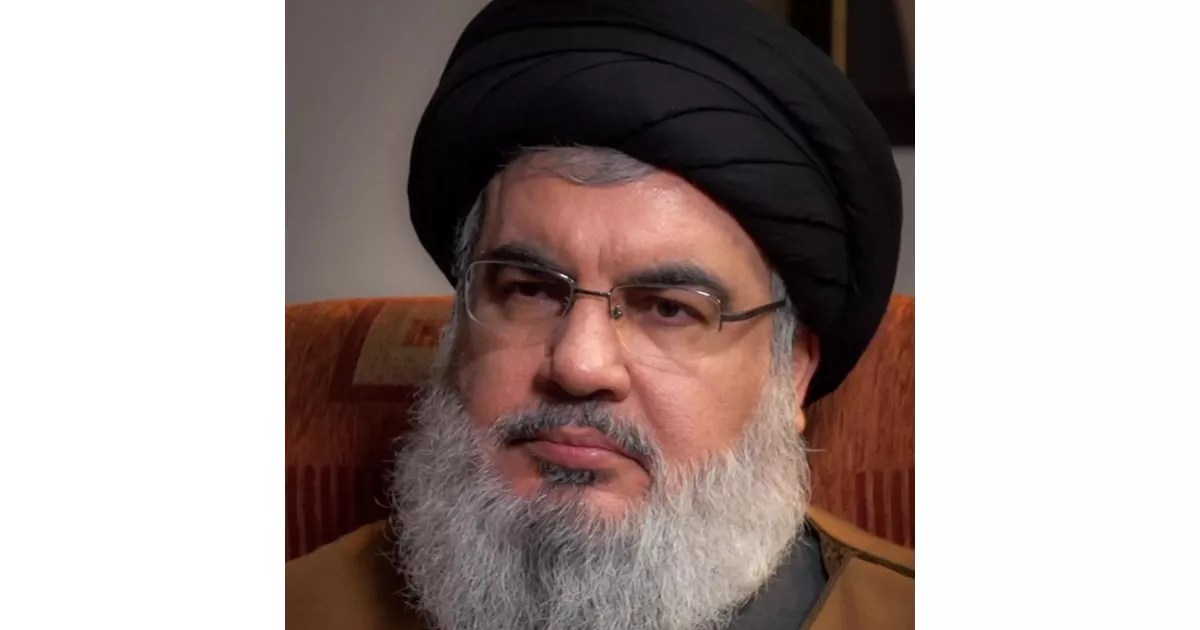Hassan Nasrallah is a Lebanese cleric who serves as the secretary-general of Hezbollah, a Shia Islamist political party and militant group. His leadership has been significant in the political and military landscape of Lebanon and the broader Middle East region.
August 1960: Birth and Family Background
Hassan Nasrallah was born on August 31, 1960, in Bourj Hammoud, Lebanon, the ninth of ten children. His father was a fruit and vegetable seller.
1960: Early Life and Education
Born in 1960, Nasrallah's family relocated to Bazourieh during the Lebanese Civil War. He finished his education in Tyre and briefly joined the Amal Movement.
1975: Relocation and Joining Amal Movement
Due to the Lebanese Civil War in 1975, Nasrallah's family moved back to their ancestral village, Bazourieh. He completed his secondary education in Tyre and briefly joined the Amal Movement.
1976: Religious Studies in Najaf
At sixteen, Nasrallah went to Iraq and studied at al-Sadr's seminary in Najaf in 1976.
1978: Expulsion from Iraq
Nasrallah, along with other Lebanese students, was expelled from Iraq in 1978 during Saddam Hussein's expulsion of Shia Muslims.
1980: Teaching and Political Involvement
Nasrallah taught and studied at Amal's school under Abbas al-Musawi's leadership in 1980. He was later selected as Amal's political delegate in Beqaa.
1982: Joining Hezbollah
Nasrallah became a member of Hezbollah following the Israeli invasion of Lebanon in 1982.
1989: Further Religious Studies in Iran
In 1989, Nasrallah traveled to Qom, Iran, to continue his religious studies.
1992: Hezbollah Leadership and Acquisition of Rockets
After the assassination of his predecessor in 1992, Nasrallah took over Hezbollah's leadership. Under his leadership, the group acquired longer-range rockets, enabling them to target northern Israel.
1992: Rise to Hezbollah Leadership
Following the assassination of his predecessor in an Israeli airstrike in 1992, Nasrallah assumed leadership of Hezbollah.
1992: Assassination of Abbas al-Musawi
In 1992, Nasrallah's predecessor, Abbas al-Musawi, was killed in an Israeli airstrike in southern Lebanon.
1993: Operation Accountability and Ceasefire Agreement
Israel launched Operation Accountability in 1993, causing significant damage to Lebanon's infrastructure. Subsequently, a ceasefire agreement was reached, with Israel halting its attacks and Hezbollah agreeing to stop attacks on northern Israel.
1993: Fragile Peace
Similar to the aftermath of Operation Accountability in 1993, the peace established after Operation Grapes of Wrath proved to be short-lived.
1996: Operation Grapes of Wrath and Ceasefire Understanding
Israel launched Operation Grapes of Wrath in 1996, blockading Lebanese ports and bombing a Syrian military base. This led to a ceasefire agreement after 16 days of Israeli attacks, with Hezbollah agreeing to cease rocket attacks in exchange for Israel halting its attacks.
September 1997: Assassination Attempt on Khaled Mashal
In September 1997, an Israeli Mossad team attempted to assassinate Hamas political chief Khaled Mashal by poisoning him. The attempt failed, and the incident further heightened tensions in the region.
September 1997: Death of Nasrallah's Son, Muhammad Hadi
On September 12, 1997, four Hezbollah fighters, including Nasrallah's eldest son, eighteen-year-old Muhammad Hadi, were killed in an Israeli ambush near Mlikh. The attack, which also claimed the lives of five Lebanese soldiers and a civilian woman, was considered a response to an operation a week earlier in which twelve Israeli commandos were killed. Nasrallah's response to his son's death, "I am proud to be the father of one of the martyrs," exemplified the group's ideology and the personal sacrifices made by its members.
2000: Israeli Withdrawal and Hezbollah's Increased Popularity
Following internal debates in Israel about the effectiveness of its military presence in southern Lebanon, Ehud Barak withdrew Israeli forces in 2000. Hezbollah's subsequent takeover of the area, previously controlled by the Israeli-supported South Lebanon Army, significantly boosted Hezbollah's popularity in Lebanon and the Islamic world.
2004: Return of Muhammad Hadi's Remains
In 2004, the remains of Nasrallah's son, Muhammad Hadi, were returned to Lebanon as part of a prisoner exchange agreement between Israel and Hezbollah. Nasrallah had previously refused Israel's offer to exchange his son's body for the remains of Israeli soldiers, demonstrating his unwavering commitment to the cause.
2004: Prisoner Exchange Deal
Nasrallah played a crucial role in a prisoner exchange deal between Israel and Hezbollah in 2004, leading to the release of hundreds of Palestinian and Lebanese prisoners. The agreement also facilitated the return of numerous human remains, including that of Nasrallah's son, to Lebanon. This event was widely perceived as a significant victory for Hezbollah and Nasrallah across the Arab world.
July 2006: Memorandum of Understanding with Free Patriotic Movement
In July 2006, Nasrallah negotiated a significant Memorandum of Understanding with the Free Patriotic Movement, led by former Lebanese Premier and Maronite Christian Michel Aoun. The ten-point agreement, as described by Aoun in a Wall Street Journal op-ed, outlined Hezbollah's agreement to disarm upon the return of its prisoners and the occupied Shebaa Farms, and a commitment to pardon and allow the return of fugitive South Lebanon Army (SLA) members.
August 2006: Nasrallah Expresses Regret Over Capture of Israeli Soldiers
In an interview aired on Lebanon's New TV station on August 27, 2006, Nasrallah expressed that he would not have ordered the capture of two Israeli soldiers had he known it would precipitate such a large-scale war. He stated his belief that the war was premeditated and the capture merely served as a pretext, emphasizing that he would not have proceeded with the operation had he foreseen the ensuing conflict.
August 2006: 2006 Lebanon War
The 2006 Lebanon War erupted in August 2006 following a Hezbollah ambush in Israeli territory, resulting in the deaths of three Israeli soldiers and the abduction of two others. The war saw Israeli bombardments targeting Hezbollah, inflicting significant damage on Beirut, particularly the impoverished, predominantly Shiite South Beirut, a Hezbollah stronghold. On August 3, 2006, Nasrallah, in response to the Israeli bombardment of Beirut, vowed to strike Tel Aviv, stating in a televised address that if Beirut was targeted, the Islamic resistance would retaliate by hitting Tel Aviv.
2006: Contrasting Songs About Nasrallah
During the 2006 Israel-Hezbollah War, two distinct songs about Nasrallah emerged, reflecting the divergent perspectives surrounding his leadership. "The Hawk of Lebanon" gained popularity in the West Bank and Gaza Strip, while "Yalla Ya Nasrallah" expressed opposition to Nasrallah in Israel, showcasing the polarizing nature of his image.
August 2007: Alleged Command Transfer
In August 2007, there were reports suggesting that Nasrallah had transferred command of Hezbollah's military wing to his deputy, Na'im Qasim. However, Hezbollah refuted these claims, asserting that they were attempts to undermine the movement's popularity.
2007: "Ya Nasrallah" Tribute Song by Alaa Zalzali
In 2007, Lebanese singer Alaa Zalzali composed "Ya Nasrallah," a song dedicated to Nasrallah, further demonstrating the diverse artistic responses to his leadership.
February 2008: Assassination of Imad Mughniyeh
Nasrallah's second-in-command, Imad Mughniyeh, was assassinated in a Damascus bomb blast in February 2008. Hezbollah accused Israel of orchestrating the attack, further escalating tensions.
October 2008: Appointment of Successor
In October 2008, Hashim Safi Al Din, Nasrallah's cousin, was chosen to succeed him as the secretary general of Hezbollah.
October 2008: Alleged Poisoning Attempt
In October 2008, Iraqi news source Almalaf reported that Nasrallah had been the target of a poisoning attempt the previous week, claiming he had been saved by Iranian doctors. While Hezbollah vehemently denied these claims, the incident fueled speculation and highlighted the ongoing psychological warfare between the group and its adversaries.
October 2008: Nasrallah Denies Poisoning Allegations
On October 25, 2008, Nasrallah, in an interview with Hezbollah's Al-Manar channel, refuted allegations of an assassination attempt against him. He accused Israel and the United States of fabricating the story as part of a psychological campaign to portray Hezbollah as internally divided and vulnerable.
2012: China's Neutral Stance
As of 2012, China maintains a neutral stance towards Hezbollah and continues to engage in contact with the group.
May 2013: Hezbollah's Involvement in Syrian Civil War
On May 25, 2013, Nasrallah publicly announced Hezbollah's involvement in the Syrian civil war against "Islamist extremists." He pledged to prevent Syrian militants from gaining control of areas bordering Lebanon and confirmed Hezbollah's participation in the battle for the strategic Syrian town of Qusair, fighting alongside the Syrian army. Nasrallah's statement highlighted the group's regional stance and its commitment to combating what it perceived as extremist threats.
July 2014: Death of Nasrallah's Nephew
Tragedy struck Nasrallah's family in July 2014 when his nephew was killed while fighting in Syria. The incident underscored the personal losses suffered by those involved in the conflict.
2015: Russia's Stance on Hezbollah
In 2015, Russia rejected claims that Hezbollah was a terrorist organization and considered it a legitimate sociopolitical organization.
2016: Hezbollah Designated as Terrorist Organization
The Arab League labeled Hezbollah as a terrorist organization in 2016 but had ceased to view it as such by 2024.
October 2019: Protests and Pressure to Resign
Widespread protests erupted in Lebanon in October 2019 due to a worsening economic crisis, demanding the resignation of government leaders, including Nasrallah.
January 2024: Death of Wissam al-Tawil, Nasrallah's Brother-in-Law
Syrian opposition media reported in January 2024 that Nasrallah's brother-in-law, Hezbollah commander Wissam al-Tawil, was killed in an Israeli airstrike. The incident further highlighted the intertwined nature of the conflict and its impact on the personal lives of those involved.
May 2024: Death of Nasrallah's Mother
Hezbollah media announced the death of Nasrallah's mother, Hajja Umm Hassan, on May 25, 2024.
September 2024: Death of Hassan Nasrallah
On September 27, 2024, the Israel Defense Forces announced an airstrike on Hezbollah's headquarters, aiming to assassinate Nasrallah. Hezbollah confirmed his death the following day.
September 2024: Israeli Airstrike on Hezbollah Headquarters
On September 27, 2024, the Israeli Air Force conducted an airstrike on Hezbollah's headquarters in Beirut, allegedly targeting Nasrallah. The attack resulted in significant casualties, with at least six confirmed deaths, over 90 injuries, and several people unaccounted for.
September 2024: Death of Nasrallah's Daughter, Zainab
On September 27, 2024, tragedy struck Nasrallah once again when his daughter, Zainab, was killed in an Israeli airstrike. This devastating loss further underscored the profound personal toll of the conflict.
September 2024: Confirmation of Nasrallah's Death
On September 28, 2024, the Israel Defense Forces (IDF) announced that Nasrallah had been killed in the previous day's airstrike. Hours later, both Hezbollah and Lebanese authorities confirmed Nasrallah's death, marking a significant turning point in the region's complex geopolitical landscape.
2024: Arab League No Longer Designates Hezbollah as Terrorist Organization
As of 2024, the Arab League no longer considers Hezbollah a terrorist organization, despite having designated it as such in 2016.
Mentioned in this timeline
China officially the People's Republic of China is an East...
Syria officially the Syrian Arab Republic is a West Asian...
Iraq officially the Republic of Iraq is a West Asian...

News encompasses information about current events disseminated through various media...
Hamas is a Sunni Islamist Palestinian nationalist political organization with...
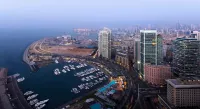
Beirut is the capital and largest city of Lebanon With...
Trending

19 minutes ago Malik Willis' Value Debated as Cardinals and Steelers Weigh Options in NFL.
20 minutes ago Inter faces Como in Coppa Italia: Chivu makes eight changes in formation.
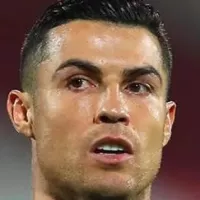
20 minutes ago Cristiano Ronaldo suffers hamstring injury; Al Nassr confirms major blow for the star.
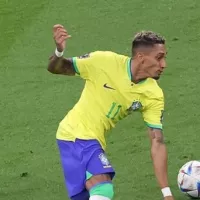
20 minutes ago Raphinha becomes the new face of Calvin Klein's underwear campaign: Exclusive photos.
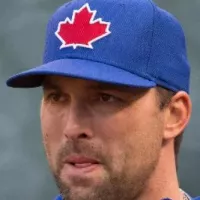
21 minutes ago Team USA Announces World Baseball Classic Rotation Featuring Webb, Skubal, and Skenes.
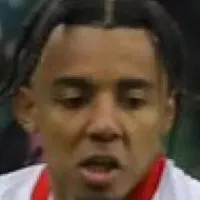
1 hour ago Jules Koundé suffers injury during Copa del Rey semi-final match.
Popular

Jesse Jackson is an American civil rights activist politician and...

Hillary Diane Rodham Clinton is a prominent American politician lawyer...

Jim Carrey is a Canadian-American actor and comedian celebrated for...

Ken Paxton is an American politician and lawyer serving as...

XXXTentacion born Jahseh Dwayne Ricardo Onfroy was a controversial yet...

Bill Clinton served as the nd U S President from...
